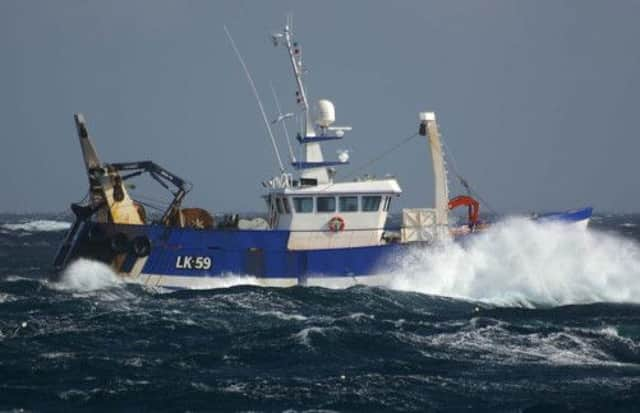Fishermen caught in a net of bureaucracy


MOST of us have become accustomed in recent years to a very gloomy narrative about the amount of harvestable fish in the waters around the UK. Egged on by chefs with a certain celebrity to sustain, academics, environmentalists and like-minded politicians have convinced the public that benighted, self-serving fishermen have emptied the seas of cod, haddock, mackerel – choose your species.
And the lesson of this beguilingly simple story? We might as well pack away our nets, tie up our boats and consign, in Shetland’s case, a third of our economy and centuries of community tradition to the history books.
Advertisement
Hide AdAdvertisement
Hide AdThere’s one problem with this narrative. It’s not true. I came to Shetland in January this year to work as executive officer for the Shetland Fishermen’s Association (SFA), which represents most of the vessels in the islands. Having worked in banking and translation (I ran my own business in a remote Alpine hamlet, Villard-sur-Doron, for a decade), I obviously have no background in the fishing industry. But I had reached the stage in my life when I wanted to work for something more meaningful – and the SFA offered me that opportunity.
In the intervening nine months, I have learned a huge amount, and continue to learn. Two things in particular stand out. One is the quality of the people involved in the industry here, their expertise, intelligence and powerful sense of community. The second is the quantity of fish our fishermen are finding on the grounds off Shetland. Stocks have not been as abundant as they are now for decades. Inevitably, the scientific data to confirm what our men are observing lags behind. But scientists are now starting to report a significant upturn in populations of a variety of species.
I grew up in Borneo and then Kenya. In both places, bad things happened when indigenous people were driven off the land. In Borneo, the rich and powerful have taken control of vast hardwood reserves, stripping the Dayaks and others of rights they had exercised for centuries. In Africa, nomads have been forced off land they had managed sustainably for more generations than we can count, and a host of mammals face extinction from poaching.
In Shetland, of course, we are not talking about land, but sea. And I very much fear that efforts to drive people off the waters they have fished and understood for at least 4,000 years will have the same effect. Communities do not plunder what they depend upon; they protect it. How convenient it would be for at least some multinationals if fishing vessels were no longer around and nobody could see what they were up to.
Shetland
Shetland and the fishing industry go together, and Shetland and healthy seas go together. There is a value in places where humans are not all that matters. It is presumptuous and dangerously misleading to think otherwise; no fisherman would.
The species we catch off Shetland are extremely diverse. Given that the EU imports more than 60 per cent of its fish, this ought to be a tremendous advantage. But no: bureaucrats in Brussels, London and Edinburgh have introduced successive layers of regulation – on days at sea, on the type of fishing gear you can use, on the amount of each species you can land, on engine size, on and on it goes. And nobody has bothered to find out before a new rule is introduced whether it conflicts with existing ones.
I have quickly come to lament the absurdity of a management system designed by consultants, environmental activists and celebrity chefs, rather than by those who have any idea how it could work.
The looming discard ban is a classic example: no fisherman wants to discard fish, but the quota system obliges them to. And now it will be illegal to discard, yet the quota system will still be there. So you have to land fish but you can’t. The whole regulatory framework has to be changed, not according to some model dreamed up by a non-governmental organisation, but according to what might actually work.
Advertisement
Hide AdAdvertisement
Hide AdIt would be good to recognise that fishermen are the prime stakeholders in all this. We have a great many opinionated people who call themselves stakeholders, but if you have a home to go to at night whether or not there is a fishing industry, I’m sorry, you are not a stakeholder. Your stake is so general as to be meaningless.
By all means, express opinions, but the regulations would not be so Kafkaesque if stakeholders – real stakeholders – had a decisive voice in their design. More specifically, the fishing industry, like any other industry, needs visibility and flexibility to survive. Visibility means a clear political commitment to the industry’s future, and flexibility means removing unnecessary regulations that prevent fishing vessels catching fish in the most effective and logical ways.
With visibility and flexibility, fishermen and their banks would have the confidence to re-invest, and more youngsters would be attracted to what has always been a proud and worthwhile way of life.
• Simon Collins is executive officer of Shetland Fishermen’s Association www.shetlandfishermen.com